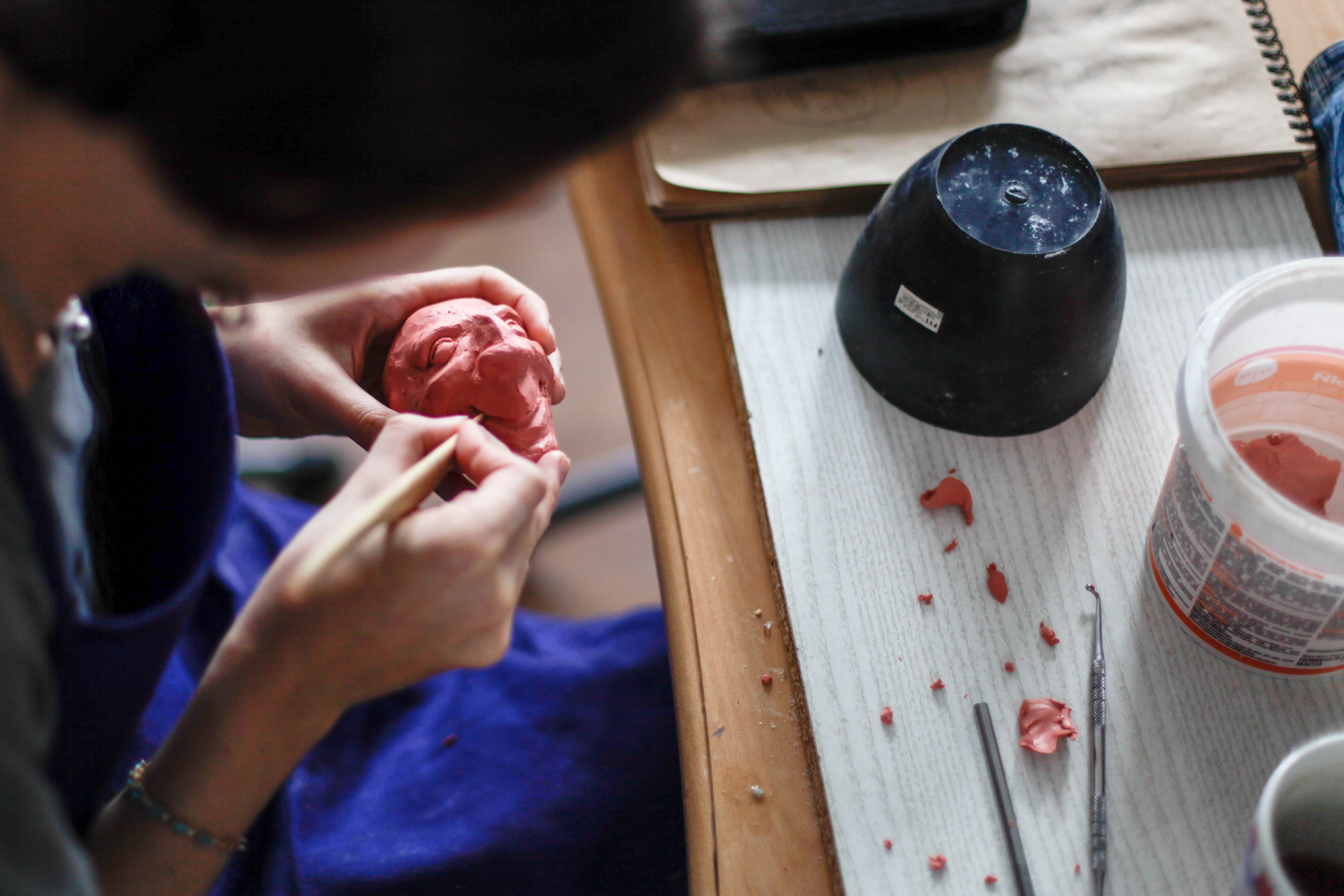5 years
course duration
₽ 711 000 per year
price
specialist program
academics
Course overview
Students study the following professional disciplines:
- History of costume;
- Composition basics;
- Academic drawing;
- Academic painting;
- Sculpture;
- Theatre technical graphics;
- Performance backdrop technology;
- Plastic anatomy;
- Computer graphics, etc.
Puppet theatre directors and designers are educated within the same joint course, as it was decided to combine two equally important puppet theatre professions. During their study designers learn academic drawing, painting, sculpture, modelling, make up, perspective and composition, computer graphics skills, as well as master directing, acting and puppetry techniques. After the graduation they work in the puppet theatres, theatre ensembles, as well as art schools and other educational institutions.
Theory
During the course students study the following liberal arts disciplines: history, history of Russian and foreign theatre, history of Russian and foreign literature, history of the cinema, music, philosophy, aesthetics, history of the theatre decorative art, art history, and many others.
Practice
Students can do practical training at the major Moscow theatres.
Language
Foreign students study Russian language for 5 years, therefore getting a good knowledge of the Russian language as a bonus.
Diploma
Graduates receive state diploma valid throughout the world.
Entrance exam
Foreign citizens take only special disciplines.
-
Academic drawing and painting (professional practical examination)
The drawing shows the applicants’ ability to arrange an image on a sheet, take exact proportions, build human’s figure preserving the distinctive proportions of the model, make the image complete on the final stage. Painting — the still-life in a free technique (watercolor, tempera, gouache, oil). It is necessary to compose a still-life painting in space, show the main coloring and color correlations in the composition.
-
Composition (creative practical examination)
Composition implies the applicant’s ability to define the main idea of the short dramatic work (task) and ability to reflect this idea in the characters and in space using mainly plasticine. While making a so-called maquette, applicant should demonstrate the understanding of the scales correlation and ability to reflect the distinctive features of the characters in sculpture. For this examination the commission can offer works of D. Harms, S. Marshak, philosophic aphorisms, Japanese hokku, etc.
-
Colloquium (oral)
Colloquium is aimed to unveil the professional abilities of the applicants. At the interlocution the ability for creative thinking and the erudition are checked, it’s a free conversation on the broad range of theatre issues and culture in general.




